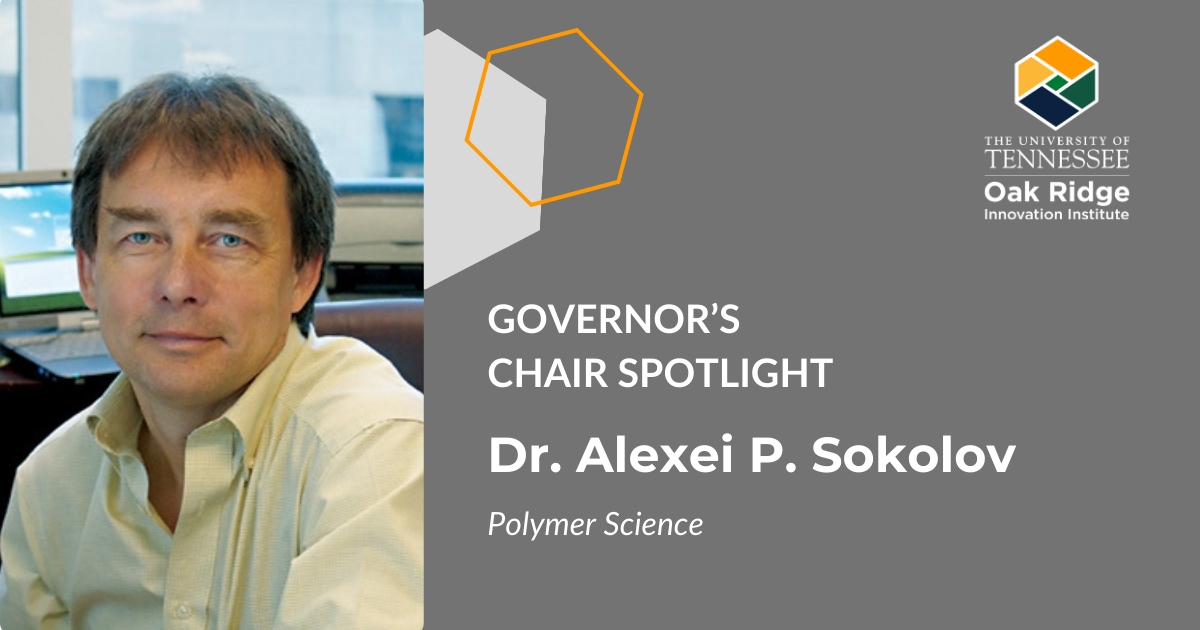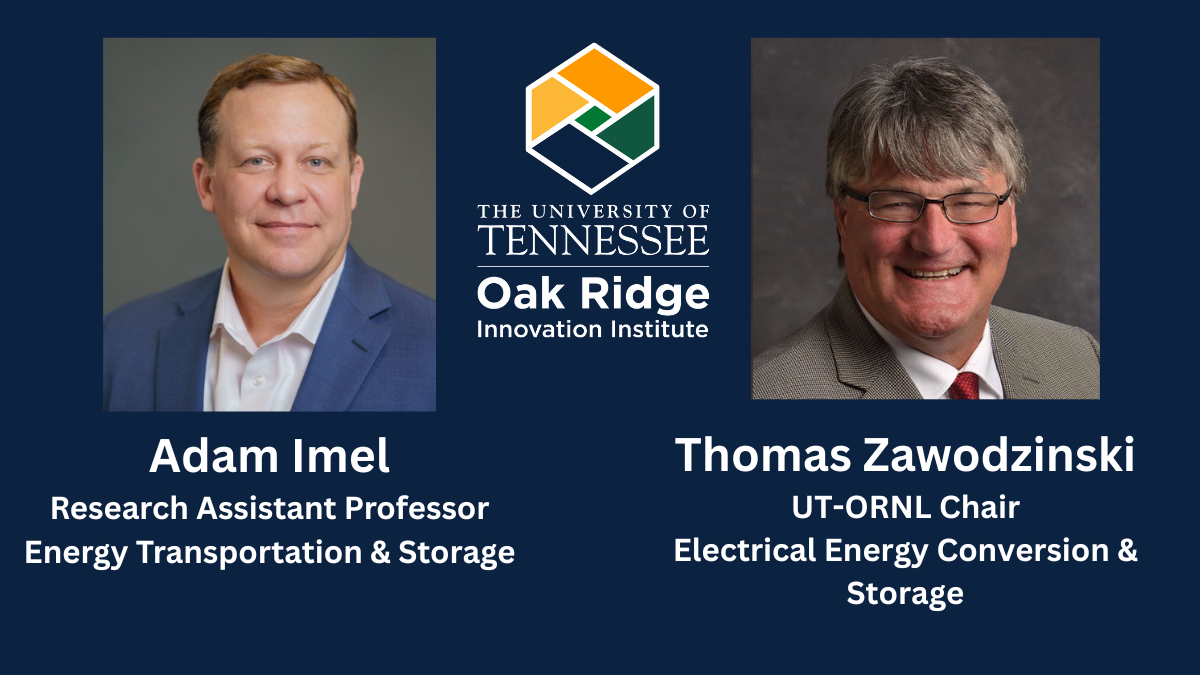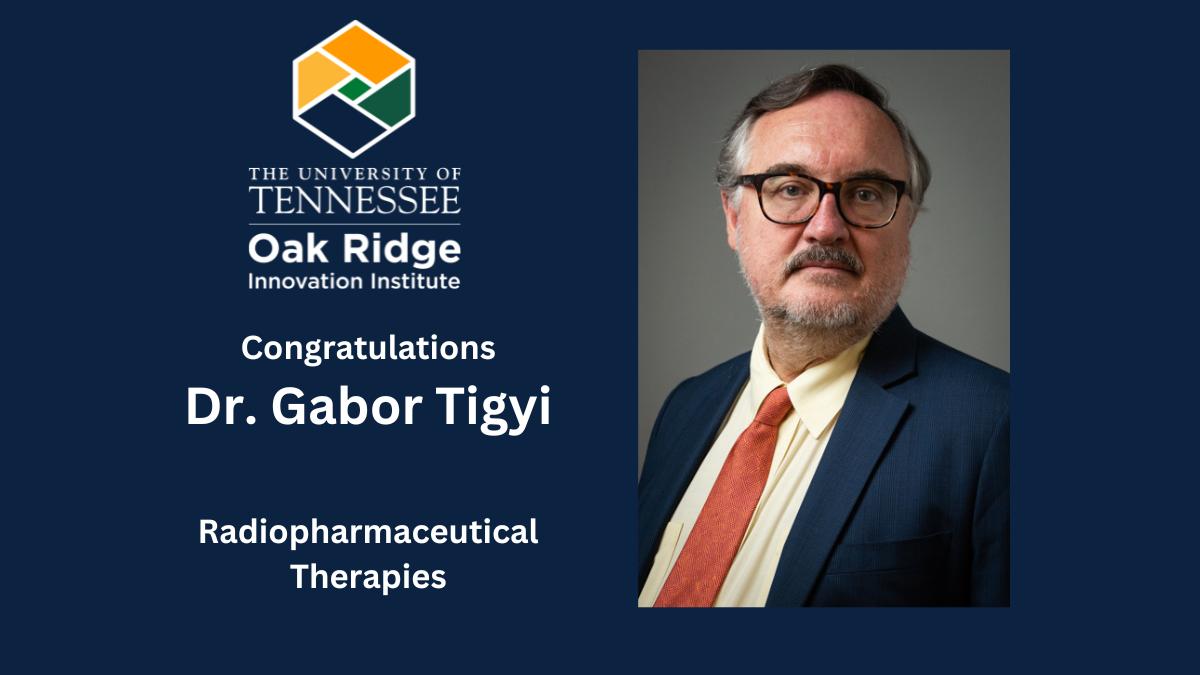Growing up fascinated by science, Alexei Sokolov said he has “always wanted to do something that nobody knew how to do.”
That desire eventually led him to polymer science where he is now at the forefront of innovation. In the past, most industrial parts were made of metal. Now they are being made from polymers and plastics because these materials are lightweight, easy to process, and can be as strong as metals.
“A lot of materials around us are polymer-based―clothes, packaging for foods, airplanes, cars, blades of wind turbines, drug delivery systems, and many, many other things,” he said.
Sokolov’s focus is on designing and developing novel functional polymers with properties far exceeding the current commercial ones, as well as being better for the environment. His research team builds large molecules atom by atom to control their properties and create materials with unique properties.
“We design new materials for advanced manufacturing that are more energy efficient and use as little carbon as possible―and which will help solve many problems, including recycling and sustainability,” he said.
Sokolov’s lab team is working on creating new polymers that are not just recyclable, but also have unique properties, such as self-healing polymers that mend themselves when compromised, which means they could be used to create products that are resistant to failure and longer lasting. They are also looking at polymers that may be programmed to change properties over time.
In addition, they are working on developing solid-state batteries with longer-lasting energy and materials that can capture carbon emissions to preserve the environment.
Sokolov, who was born and raised in Russia, earned his master’s degree in physics from Novosibirsk State University and his doctorate in physics from the Russian Academy of Sciences.
He was a senior scientist at the Russian Academy of Science and worked at several institutions in Germany before moving to the United States to join the faculty of the University of Akron’s College of Polymer Science and Engineering. He came to UT as the UT-ORNL Governor’s Chair in 2009, a program led by the UT-Oak Ridge Innovation Institute that oversees UT and ORNL’s joint research, education and workforce development programs. Sokolov also founded the Soft Materials and Membranes group at ORNL.
Sokolov is a Fellow of the American Physical Society and the American Association for the Advancement in Science, and a Member of the National Academy of Inventors. He has authored more than 380 publications in peer-reviewed journals and holds five patents.
In the years he’s been in Tennessee, Sokolov has seen polymer science prosper at ORNL and UT. When he arrived, there was only one other polymer scientist; now his research team includes around 30 co-workers and students.
“We are now world leaders in understanding polymer dynamics,” he said. UT has been ranked as one of the top universities in the world for polymer science in U.S. News and World Report’s Best Global Universities. The ranking is based on recent research performance, as well as citations from publications.
Sokolov said polymer research is happening at UT in many areas, including chemistry, engineering and agriculture.
“We have always had many polymer scientists,” he said. “We have many students in different departments, working on different aspects of polymer science.”
When he’s not working, Sokolov enjoys sports, including tennis and volleyball. He also enjoys vacating in warm climes where he can scuba dive, snorkel and sail.
He and his wife, Olga, have two grown sons and two granddaughters.




